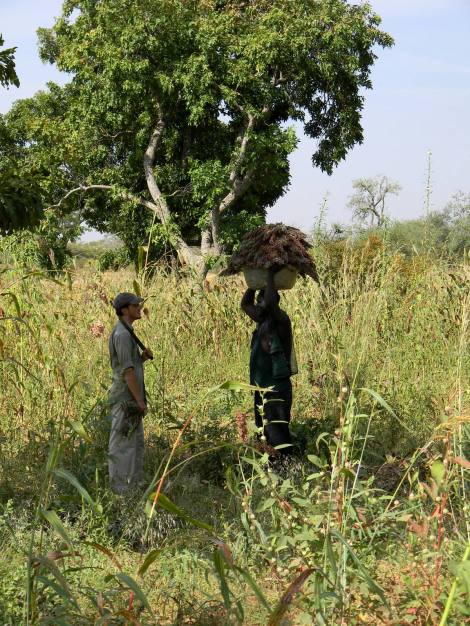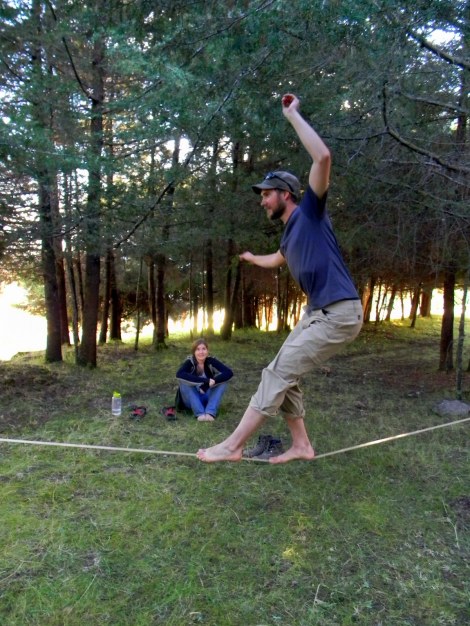Thanks for sticking with me during my injury-induced interlude. Everyone’s words of encouragement have really kept my spirits up. Keep the calls and messages coming please!
This week we will return to business as usual with part two of the Valentine’s Day piece. In honor of Peace Corps’s 53rd anniversary, the focus is on love in the Peace Corps. For a look back on part one: Melodrama, Love & Romance in Mexico, click here.
——————-
Peace Corps is a 27 month commitment. This is obviously going to impact one’s love life. It does not seem to matter if volunteers arrive single, dating someone long-distance, or married; they are in for a challenge.
All volunteers fall into at least one of the following categories during their service:
- Single
- Half of a long-distance romance
- Married
- Dating a local
Note: All of the following headings have been said to me while in Peace Corps villages
You should get married.
We will gift you a cow & dance at the wedding!
Single life in the Peace Corps
In the Peace Corps, being single is hard. Almost universally, volunteers struggle with loneliness and crave affection much more than they would otherwise.
On top of that, many of our local counterparts find it strange that we might not yet be married. “You should get married,” “I can find you a spouse,” and “Will you be my spouse?” are not uncommon phrases to the ears of single volunteers.
The single life is particularly challenging for volunteers who identify as LGBT. They sometimes live in cultures that have different views about non-heterosexual pairings. In places like that, single-hood is thrust upon volunteers for their safety and success.
Single volunteers get to know themselves very well, and gain incredible strength and self-reliance. I really admire them.
It is not surprising that many volunteers fall in love during their service. I have heard, although I would guess that it is a bit of an overstatement, that 80 percent of volunteers come back married, engaged or in love. Regardless of the accuracy of that statistic, single volunteers often shift out of that category and into one of the following three categories.
Amor de lejos: amor de p**dejos
Love at a distance in the Peace Corps
If you ask a Mexican about long-distance love, they might repeat either common saying: 1) “Long-distance love makes four people happy,” implying the certitude of infidelity and heartbreak; or 2) “Long-distance love is for idiots.” I cleaned up the language on that second one since it is not worded “family-friendly.”
I hear those two phrases regularly because I fall into this category.
Just like being single, long-distance relationships are hard. Without being in the same place, partners need to develop new ways to incorporate each other into daily life. They also need to redefine how to communicate love and affection.
Those who make their long-distance relationship work have sacrificed and supported each other through tough times and have still chosen the relationship. But due to the challenges inherent to long-distance relationships, there are only a few who stay with their long-distance partners.
The vast majority of long-distance relationships in Peace Corps are those that develop within the host country between fellow volunteers. And there are a lot of them! Come to Peace Corps and fall in love ❤
Introduce me to your media naranja
Married life in the Peace Corps
About 10 percent of volunteers arrive in the host country with their media naranja (the other half of their orange), and just about all of them say “I do not know how I would do this without my partner at my side!”
There are so many advantages to married life in the Peace Corps. These volunteers have someone with them who understands their past as well as their present. During tough times, someone is there to lean on; during great times, someone is there to celebrate their successes. Many married volunteers have written about the advantages, from Botswana to Jamaica.
While married volunteers have some distinct benefits, it is not like their experience is a cake walk.
Imagine being with a spouse all day, every day for two years. Married volunteers are almost inseparable and are often treated as one unit rather than two united individuals. And like all volunteers, they regularly experience many emotional ups and downs. They have to make serious efforts to not take their stress out on the other.
Married Peace Corps Volunteers share an intense experience; they discover each other in a new context and grow a strong appreciation for their marriage. I really commend their close connection.
I have always wanted to date a white person…
Dating a local in the Peace Corps
It is inevitable really; volunteers are surrounded by interesting people from a different culture for two years. The recipe for love is there. Many find these relationships to be a great opportunity for cultural immersion, and a very effective way to discover new things about themselves.
The Huffington Post published a list of 14 Beautiful Experiences that are unique to cross-cultural relationships. I am sure many volunteers, past and present, can relate to the list because so many have fallen in love with a local, and numerous marriages have resulted.
However, this option also has its inherent challenges.Communication can be difficult, and gender roles and feelings might be expressed differently.
On the positive end, my friend Rachel explains:
I still get confused by his chivalry. Like, he’ll stop to let me go ahead of him [but I do not know what his intent was, so] I stop too and ask him why we stopped. Or, he’ll pull out a chair for me at a restaurant and I’ll go over and sit in the other chair because I think he wants to sit in the chair that he pulled out.
Chivalry is a benefit of intercultural dating, if I ever figure it out!
On the flip side, many volunteers in cross-cultural relationships have complained that their new partner (or their family) have different expectations of the relationship. For example, some locals have been known to pressure volunteers to progress the relationship much faster than they are comfortable doing.
For those in cross-cultural relationships, they have the added worry about their post-Peace Corps future and how that impacts the longevity of the relationship. However, their experience allows them to discover new ways to express love, and have someone by their side to help during tough times. Their road is not easy, and it makes me smile seeing love develop despite the odds.
——————-
It seems to me that no one has an easier path than the next volunteer; each option has great benefits and great challenges…with or without your media naranja by your side.
——————-
Medical update
Recovery is slow but steady. I am still not able to walk at all nor can I stand for more than 10 minutes at a time, but that is a big improvement from where I was three weeks ago. It just takes time to heal torn ligaments, pulled muscles, and pinched nerves!
——————-
Project update
Luckily, I have maintained continuity with my project during my absence. With the help of a fellow volunteer, the trail crew is able to keep working. In fact, they have made tremendous progress during the past two weeks.
Since a strong foundation was laid for the project, my co-workers are able to continue progressing. It is a great feeling to stand back and see change happening.
A big thanks to Becky for the photos (above) and for serving as my communication go-between and personal proxy while I have been away.
——————-
Making me smile
- Showing my post about Melodrama, Love & Romance in Mexico to a good friend; I watched her laugh hysterically while nodding in agreement at the foreigner’s view of her culture
- Joking with Dr. Su Yu, my acupuncturist, is fun. She gets me laughing every time, despite all of the needles: “Just one more needle,” she says with a smile. “Want you get better.” Me too Dr. Yu, me too
- Finally understanding my co-worker’s joke about my injury. “Metiste la pata:” You put your foot in! she laughed as I stared at her with a confused expression. I looked it up later. It means “you made a mistake,” but the word play focuses on feet. Very funny Marcelina, very funny










Made me start thinking —
the Love part – easy, like falling into a cloud
the Relationship part — a whole different animal!! But tremendous lessons, potential for so much. Particularly – as Grandma Jo would say – lots of learning to be done!
Great to see so many in locations from all over. Hits my wanderlust.
And —– Can you say — How beautiful are *those* trails?! Can I hike on them? Would *love* to go.
Glad healing is going well, keep it up (Look at that, ha, another pun!)
Blessings to you
Aunt K
I would love to hike the trails with you and the girls. Let’s do it someday!
Nice words! Dating a local… never isn’t weird. I wonder how long I’ll still be surprised by our cultural differences. (When before I would never let him carry my stuff, now I wait for him to pick up my bags, and he has adjusted quiet well to me being an independent American woman). 🙂
Thanks Becca. Gosh, you went through 3 of the 4 categories during your service! What a ride. I hope that you and Israel are still happy/in-love and are enjoying the strange and wonderful journey of a cross-cultural relationship 🙂